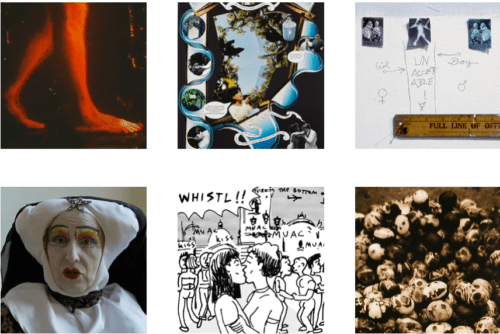2) Violence against women: A driver of new infections and a barrier to women’s leadership in AIDS activism
South Africa is a country with a very high rate of intimate partner violence. Kristen Dunkle et al. have demonstrated that women with violent or controlling partners are at a greater risk of H.I.V. infection (2004). Women AIDS activists have also been vulnerable to violent gender-based attacks for openly revealing their H.I.V. status; therefore, it remains a serious barrier to women’s exercise of vocal public leadership in activism around the epidemic.
As has been well documented, in December 1998 a woman activist from the National Association of People Living with H.I.V./AIDS (NAPWA) named Gugu Dlamini was publicly murdered in KwaMashu, Durban, a month after revealing her H.I.V. status on Radio Zulu. A bungled investigation rendered a successful prosecution impossible; however, an inquest into her murder, which was held only after vigorous advocacy by the AIDS Law Project (ALP), revealed that the suspects were heard by neighbors to accuse Dlamini of being a prostitute who had infected people with H.I.V. shortly before her brutal murder. 1
Dlamini’s experience is far from isolated. For instance, Promise Mthembu, who is now the global advocacy officer for the International Community of Women Living with H.I.V. (ICW), has stated that she has also experienced gender-based violence as a consequence of her activism. Mthembu was diagnosed with H.I.V in 1995. Five months after her diagnosis, she joined the National Association of People Living with H.I.V. (NAPWA) and began to speak out about living with H.I.V. in public meetings. Because of her H.I.V. status, her first child was stillborn, and her partner blamed her for infecting him with H.I.V. (Mthembu, undated). He began to beat her, and her speaking out about living with H.I.V only compounded the abuse. Writing about her own story, Mthembu said that her partner:
became more and more angry with me for attending AIDS meetings and giving talks about my personal story. He was jealous of my meeting other people who are H.I.V-positive, saying that I cared for and supported other people at his expense. My life became an endless circle of beatings and unprotected sex, especially if he was drunk. I could not take it any longer and I left him, despite the cultural disgrace and shame that it caused (Mthembu, undated).
The gravity of the issue was also demonstrated when TAC activist Lorna Mlofana was murdered after revealing her H.I.V. status to her perpetrators following a multiple-assailant sexual assault in Khayalitsha Township, Cape Town, in 2003. The successful prosecution of the perpetrators of the murder only came about after vigorous organizing by the TAC in the community.
As Walsh points out, civil society has often been conceptualized in the theoretical literature as separate from the “private sphere” of the family. However, family obligations and gendered problems in the home, such as intimate-partner violence, can act as a barrier to women’s public political participation (2009). In addition to outright violence, Walsh points out that the “private sphere” impacts women activists’ performances of their “public” roles through their experiences of the following problems: sexual harassment within their organizations, the “double shift” of unpaid housework at home and paid work for civil society organizations, and inconvenient meeting times after hours when public transport is less safe for women (2009). This is in addition to the fact that organizational sexism means that women have more limited experience and skills to make them eligible for promotion, and there is frequently a lack of institutional support for them in the rare instances when they do ascend to leadership positions (Walsh 2009).
Ironically, given that AIDS activism is at least in part aimed at ending new infections, sexual harassment has occurred in AIDS activist organizations in South Africa. In 2005, one woman told us that in her organization, “To get a hired position, you must sleep with the male supervisor . . .. If you break the relationship, you will be harassed until [you have] to resign, leave the job and go back home to die” (interview, April 26, 2005). Such relationships are clearly coercive and unethical in a context where women are more likely to experience difficulties in finding an alternative livelihood, and where the power imbalances inherent in such sexual relationships could make it harder to negotiate consistent and correct condom usage.
- Inquest No. KwaMashu CAS 375: 12: 98, p. 18. The AIDS Law Project kindly sent the author a copy of this inquest in 2004.[↑]



